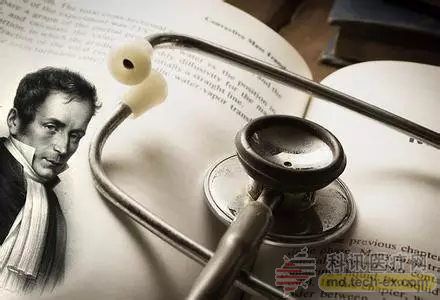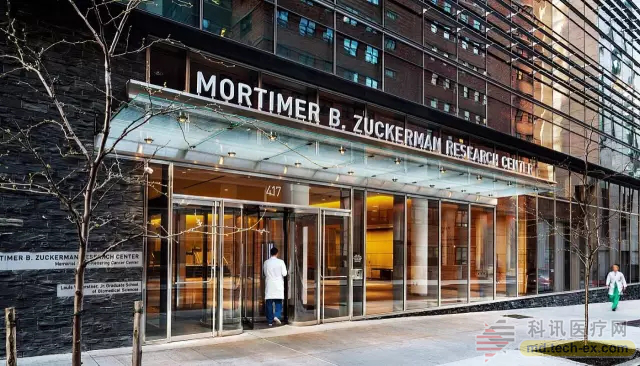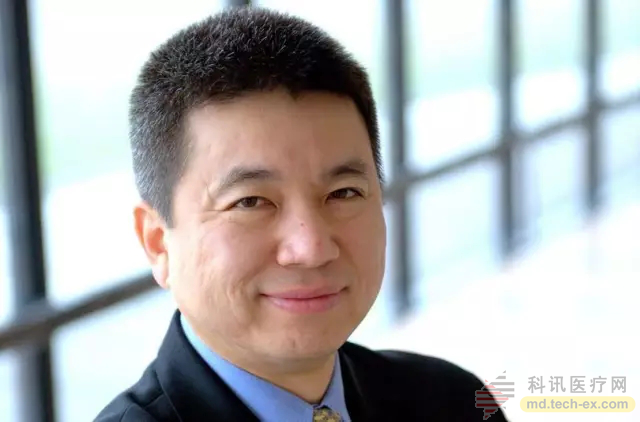Release date: 2016-07-06 Before speaking at the WIRED Health Conference, Kyu Rhee, IBM's Chief Health Officer, took out an iconic medical device from his pocket: a stethoscope. The first stethoscope born in the world was a mono stethoscope, invented by the French doctor René La ennec 1781--1826, which has been around for 200 years. During these two hundred years, no matter how advanced the technology is, there are various non-invasive techniques for internal examination of the body, but the stethoscope is always the medical device that best represents the "doctor". A 2012 study showed that doctors carrying stethoscopes are more professional and more worthy of patient trust. "Amazingly, until today, medicine still uses stethoscopes in certain areas," Rhee said. "But I believe that in the next 200 years, cognitive robots like Watson will replace stethoscopes and become future medical care. a part of." IBM's Watson robots produce results based on cognitive computing to absorb both structured and unstructured data. To master a discipline, Watson first has to absorb a large amount of existing data, and then the experts will enter the established questions and answers to train them. Watson will then be asked a question that does not give an established answer. Watson uses his own understanding of the problem to list thousands of possible answers and to sort the answers. The more Watson answers, the better it understands. New vision for cancer treatment Stethoscopes have existed for two centuries, and during this time, medicine has undergone earth-shaking changes. Jose Balsega, chief physician of the Memorial Sloan Kettering, lists the rapid changes in cancer treatment since the Watson robot. In response to these changes, thousands of articles appear every year in the medical field. New imaging technologies such as PET scanning, CAT scanning and ultrasound imaging have brought new hopes for cancer treatment. At the same time, the rise of genomics has made cancer cell sequencing and patient genetic analysis possible. In the 1960s, doctors had only two diagnostic options for a particular disease, but today's doctors may have 50 different treatments that are recommended and not recommended. Commemorating Memorial Sloan Kettering Watson wants to help doctors treat diseases. It's not that simple. From the beginning, you have to start from "reading" honestly. First, Watson must first read all accessible medical literature. At the same time, it also reads the clinical records of the Memorial Sloan-Kettering Hospital and the reasons for the doctor's treatment plan. For Watson, it can read millions of words in seconds. At the same time, it also understands the natural language, including the use of medical records and journal articles, even the doctors themselves look at the complex language. Not only that, Watson is not just a nerd who can only "read". It can apply all the knowledge he has learned to new cases and advise doctors based on all the medical knowledge he knows. For example, once we took a preliminary diagnosis of a young lung cancer patient to Watson to "see". After Watson "sees", the patient is recommended to make a molecular diagnosis because there may be genetic mutations in the patient. These mutations may affect treatment. The choice of the program. When we "see" Watson's molecular identification results, it found mutations in the epidermal growth factor receptor (EGFR) gene in patients. In response to this phenomenon, the current practice recommended by the medical community is to use the drug erlotinib for treatment. However, a recent article pointed out that among all the mutations in the epidermal growth factor receptor gene, there is a case where the drug erlotinib has no effect on it. Coincidentally, this rare phenomenon appears in this case. Worldwide, up to 10 doctors are aware of this new study. However, Watson has not only read this new research paper, but also combines the patient's condition with these new research to provide the doctor with the right advice. A typical example of augmented intelligence in medical applications - Watson is able to access the latest medical literature very quickly and, on this basis, to digest understanding and support physician decisions. Memorial Sloan Kettering has accumulated the most extensive expertise and cutting-edge diagnostic technology in the field of cancer treatment. Watson is trained in such hospitals. Because Watson is "in vain" in the cloud, Watson's accumulated cognitive data and information, as well as its experience in commemorating the interaction with experts at the Sloan-Kettering Cancer Center, are accessible worldwide. So no matter where the experts at the Sloan-Kettering Cancer Center are, as long as there is a network, Watson's cognitive abilities and data can be easily obtained. In October 2014, the Bumrungrad International Hospital in Bangkok, Thailand became the first hospital outside North America to introduce IBM Watson robots in the field of cancer care. Since then, with Watson's cloud computing support, Kangmin International Hospital and Memorial Sloan-Kettering Cancer Center can easily help each other and share cancer diagnosis information. For Watson, this is also a big benefit - the more data it comes into contact with, the more its understanding can become broader and deeper. "In the UK and the US, cancer care is highly specialized," Rhee said. "But in some developing countries, there are very few oncologists, but at the same time they have to treat a lot of cancer patients. We all know that one It is impossible for people to master all the knowledge. The emergence of Watson robots provides us with a great opportunity to open and share cancer treatment information around the world. People in every region can get the world's top professional through Watson. know how." Saving data is just a life saver When it comes to medical data, the first thing we think of is the medical records that are kept on paper and in the computer. But with the rise of health intelligence hardware, the boundaries of medical data are constantly being expanded. In April of this year, data recorded by a health-smart hardware saved the lives of a New Jersey man. The man has a heart attack at work, and the doctor extracts heart rate data from his smartphone that can help doctors eliminate unnecessary diagnoses, so doctors can quickly find the right treatment. Medical data is more than just medical journals and medical records that doctors enter into computers. Our bodies generate massive amounts of potential medical data all the time. But for now, most of the data is in a "lost" state - how many steps we take every day, how about our heart rate today, whether the temperature of the skin is high or low, what we eat today, etc. These data are only stored in local, solitary devices and apps. Watson Health's European head, Matt Howard, said, "The most important thing for us is the quality, control and regulation of the data. It is the interaction between these factors that makes Watson's health a very interesting idea. Watson is not just cognitive, it is a complex interaction of cognitive ability and big data, analysis and decision making." To get anonymous health data, IBM works with manufacturers of wearable health devices and other hardware, including Apple and Under Armor. Massive health data can enhance Watson's perception and understanding of health, not just health care. "We have about 15 decisions about medical care in a year, but every day we make 1,500 health decisions," Kyu Rhee explained. "For example, if you don't put sugar in your coffee? Eat breakfast? Where to park? Climb up the stairs? Don’t call your family today?†Kyu Rhee Rhee is a versatile, full-time doctor in the hospital, and he is also a pediatric medical specialist within the hospital. Rhee himself said that he spends an average of 10 to 15 minutes on each patient. Even patients with chronic conditions rarely spend more than two hours with their doctors a year -- and half of the time is spent on updating documents. In the absence of full communication with doctors, patients make major decisions about their health all the time, but they often lack the necessary information. According to statistics, there are about 400 million people worldwide suffering from diabetes. The number of such a large number of patients is definitely not taken care of by doctors. Just recently, Watson and medical device manufacturer Medtronic are working together to solve the problem of diabetes. Medtronic has accumulated 125 million days of anonymous records through its blood glucose monitors and insulin pumps. Watson combines these anonymous records with other massive amounts of anonymous health data and uses medical knowledge to explain them. The goal of Medtronic and IBM is to create a system that tracks a range of impact factors and provides accurate information on how patients can predict and avoid the onset of hypoglycemia. Howard said, "If we use a "cognitive health coach" like Watson on a large scale to provide patients with diabetes risk scores, exercise guidance, dietary recommendations and other high-quality information, even if only a little bit is promoted, the entire medical treatment will be The system has a huge impact." The hospital of the future is "living" Only when it is possible to obtain important information from structural data and non-structural data, and to give correct results in the opposite direction, is the performance of sound cognitive ability. Since IBM acquired Merge Technologies in 2015, Watson has the ability to "see" imagery. Moreover, this acquisition also gave Watson 3 billion video clips, which greatly enriched its knowledge base. The information we need is different - doctors need more different kinds of information than diabetics. Children who are caring for sickness also need special information. Alder Hey Children's Hospital is located near Liverpool, England, and they are currently working on an ambitious project to make the hospital "Living Hospital." Their goal is to create a sensitive, responsive and intelligent medical environment for hospitalized children using high-precision calculations, sensors and the latest in entertainment technology. Alder Hey Children's Hospital The hospital plans to develop an app that can connect multiple devices in tandem, and then fill the hospital with a variety of interactive devices. These devices are not written for the patient to see, but can understand the words of the small patients and answer their questions. "We want a child to be able to ask "What is my room like?" or "What happens to my surgery," explains Ian Hennessey, director of clinical innovation at Aldhi Children's Hospital. Semantic analysis is an important technological breakthrough in the past five years. Now the scope of "pocket" artificial intelligence, such as Siri, Cortana and Google Now, has exceeded the simple command, and now they can take advantage of the processing power and data capacity of cloud computing. Explore the meaning of the voice and find the answer. The first step in the creation of "Living Hospital" at Aldhi Children's Hospital is to enhance the patient experience. Currently, the hospital's app is currently able to answer some simple questions, accounting for about 10% of all problems. Like "Where is the nearest ATM?", "How long before I can eat, I can eat." These problems can save time for hospital staff and automatically answer without staff. The goal of the next stage is not only to answer questions, but also to know the status of the patient's question. Talkspace, an online medical platform, has trained Watson to be a language and tone that can be used by patients to judge patient stress levels and personal information. Knowing whether the patient is asking for curiosity or fear helps to calm the patient's mood. A patient with a stable mood sleeps better, feels better, and provides a clearer answer. Watson's sound cognition is far more effective than hospitalization and medication. With the right equipment and data, Watson with sound cognitive ability can protect life and health 24 hours a day. Data, and the ability to interpret data, will be the most powerful drugs of the 21st century. At the same time, Watson has created a new way to understand patients, it will become the "stethoscope" of this century, this revolutionary technology will become very common in the future. Source: Singularity Network Sesame Products Gift Package,Organic Black Sesame Products Gift Package,Organic Black Sesame Seeds Products Gift,Organic Black Sesame Products Gift Box Chinese Seasoning (Shandong) Trading Co.,Ltd , https://www.zt-trading.com


